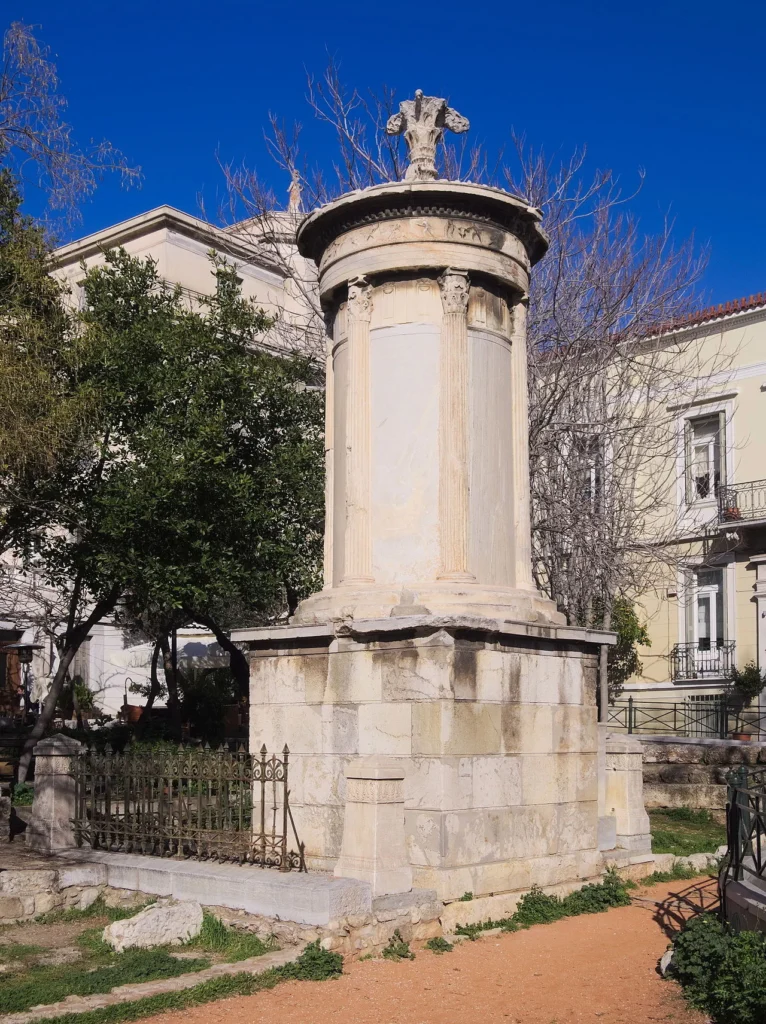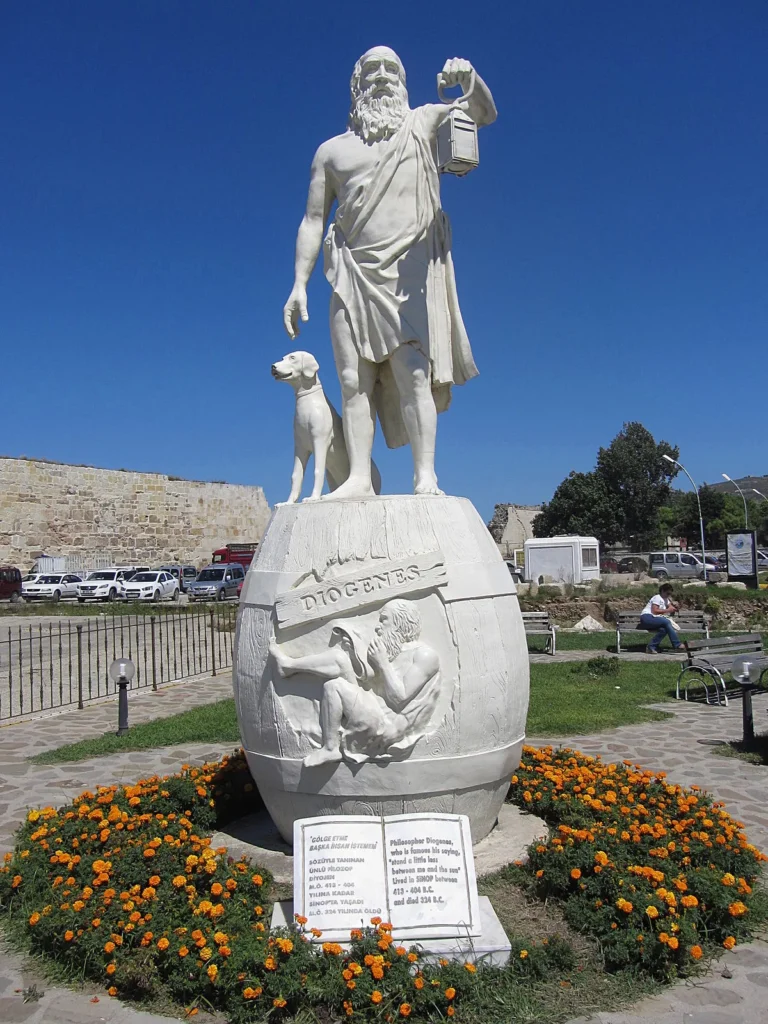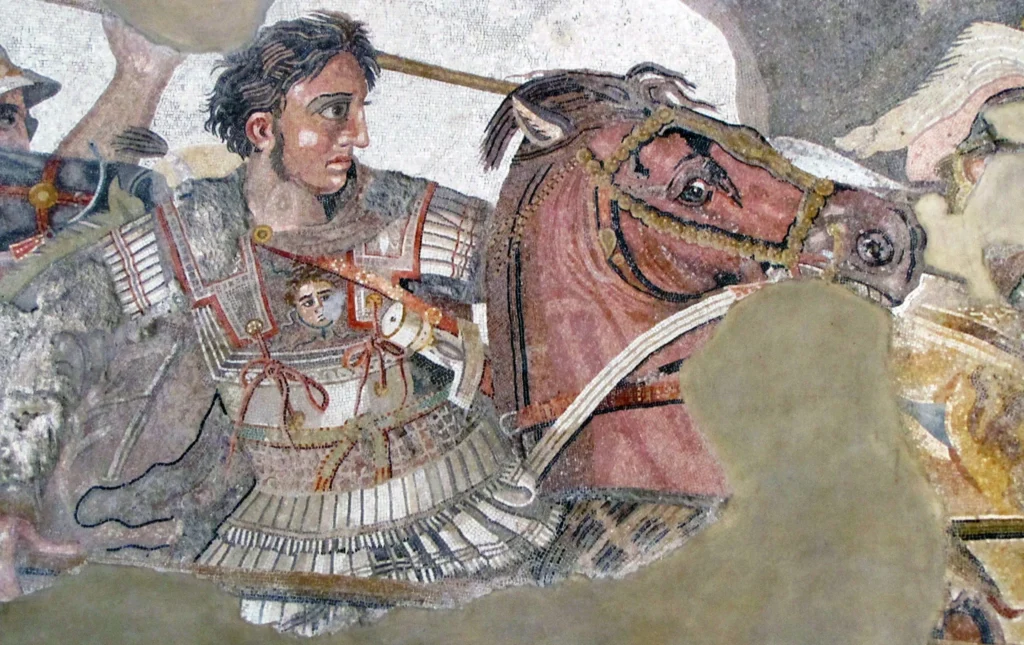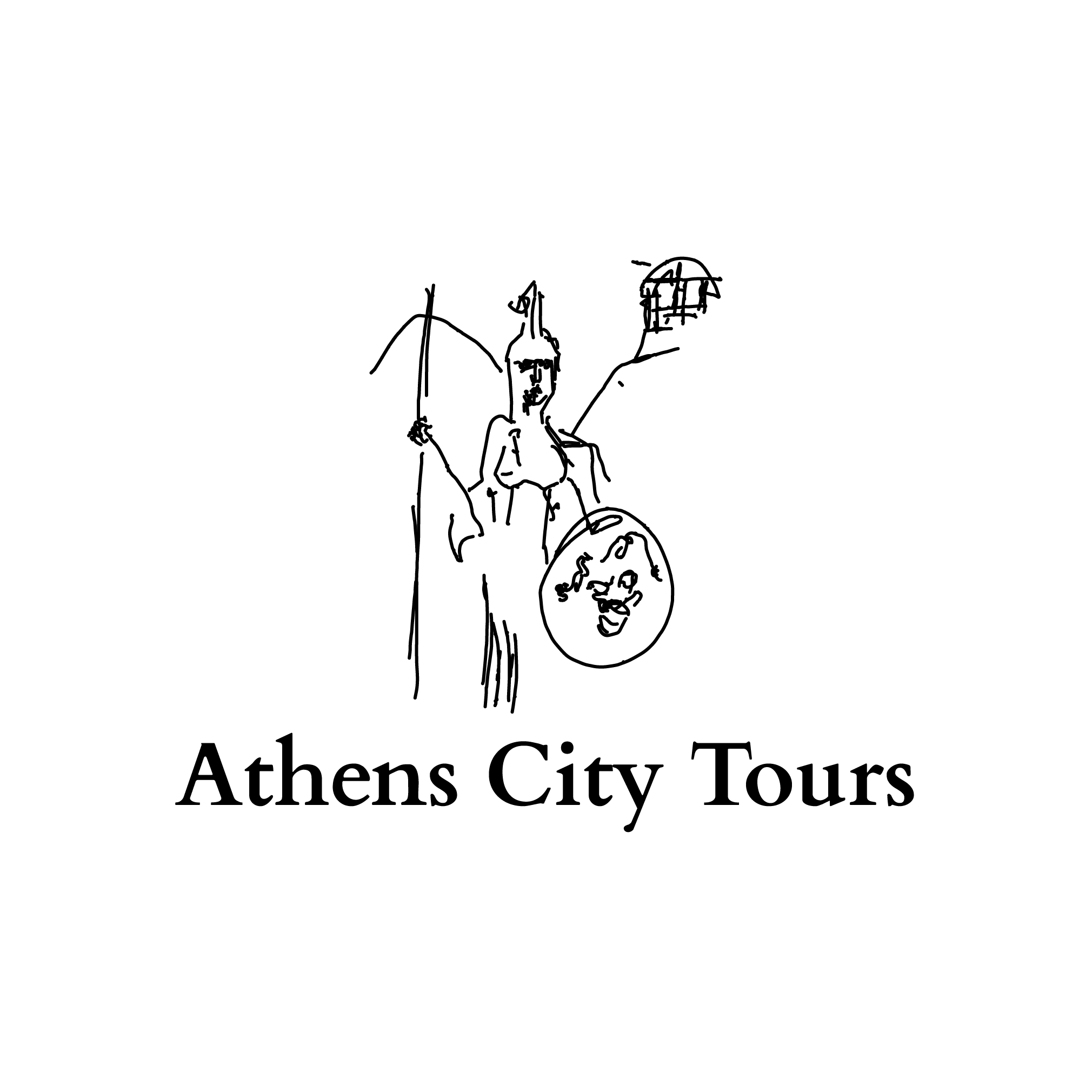What do a lantern, a drunken philosopher in a barrel, and a monument to Dionysus tell us about the end of the Greek city-state?
That’s what we’re going to find out in “Twilight of the Free States,” a journey through the crumbling ideals of classical Athens, from civic pride to imperial decline. Along this winding path, we meet the cynic Diogenes, the eloquent Demosthenes, and Alexander the Great, poised between madness and majesty.
Lysicrates and the Lantern of Diogenes
Our story begins in Plaka, at the Monument of Lysicrates. Erected in 334 BCE, this small but ornate structure celebrated a theatrical performance sponsored by the wealthy Lysicrates. But this was no golden age.

By then, Athens was already past its peak. Democracy had fallen in 401 BCE. Socrates had been executed in 399. The empire had fractured, and the once-vibrant polis had entered a long twilight. The Lysicrates monument thus shines like a last candle in a darkening room, beautiful but melancholic.
Legend has it that this same monument was later dubbed “the Lantern of Diogenes,” the cynic who famously roamed Athens by daylight with a lantern, looking for an honest man.
Diogenes and the Shadow of Power
If Lysicrates represented elite patronage, Diogenes represented its rejection. Living in a barrel and mocking social norms, he embodied the raw, uncompromising critique of appearances and institutions. One famous episode: when Alexander the Great visited Diogenes and asked if he could do anything for him, the philosopher replied: “Yes, step aside, you’re blocking the sun.” Alexander, a volatile figure torn between divine pretension and murderous rage, replied, “If I were not Alexander, I would be Diogenes.”

In this encounter, two ends of Greek civilization stood face to face: the mad conqueror and the mad philosopher. Empire and resistance. Glory and refusal.
From Free City to Nation-State
By 330 BCE, Athens was no longer a military power. Like much of Greece, the city had lost its wars but won the cultural battle. Koine Greek, the language of Alexander’s campaigns, would become the language of New Testament and Roman philosophy. Yet Athens had fallen into decadence. With racial purity laws (introduced by Pericles before the Peloponnesian War), the pool of citizens allowed to vote or fight had shrunk dramatically. A hoplite had to buy his armor but if both your parents had to be Athenian to qualify, how many could afford it? This civic rigidity would become a blueprint for later nationalism.
The Athenian idea of the autochthon (those born from the very soil of the land) served as a prototype for the dangerous romanticism of the 19th-century nation-state and, ultimately, for the ethno-nationalisms of the 20th century.
When Democracy Dies
The Athenians killed Socrates not for religious impiety but for being an inconvenient voice. The same aristocrats and oligarchs who enforced racial laws could not tolerate his critique. And so, in a final act of dissent, Socrates drank the hemlock, surrounded by mourners and philosophers in a symbolic anti-symposium. He refused to flee. He refused to kneel. He chose death over betrayal of his principles.
“Voting is an art,” he once said. And in silence, he taught his final lesson: beware the mob.
Athens vs Empire
What was once a mosaic of free city-states (Athens, Sparta, Thebes) was fading. The empire was on the rise. Macedon, not yet Rome, set the tone. And Alexander, though tutored by Aristotle, bulldozed what democracy remained. Yet even in defeat, Athens became the model: culturally revered, politically surpassed.

Later empires, from the Ottomans to Bismarck’s Germany, would replicate this pattern: destroying the body of a culture while adopting its soul.
Conclusion: The Soft Power of Collapse
The twilight of Athens was not just political, it was deeply philosophical. Its ideals were betrayed from within long before Alexander knocked on the door. What remained was a cultural force stronger than armies: language, architecture, and thought. The Monument of Lysicrates is a memorial to a play and a civilization gasping for air as the curtain fell.
Greece may have lost the war—but it won the afterlife.
Want to learn more in person, check out our End of Empires Tour.
